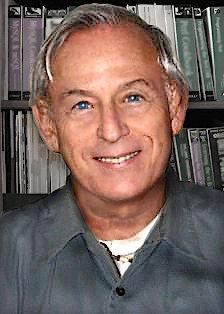Made It Moment: Charles Salzberg
Charles Salzberg writes this new Moment, and it is a great tale in of itself: of struggle and art and commercial success. Charles is as gifted a teacher as he is a writer and in these few words he makes us all students, not of writing but of life. Read on and then please weigh in with how you feel about Charles’ path to publication of his sharp, wry detective novel, SWANN’S LAST SONG.
Well, I’m not sure I think of myself as making it yet—perhaps no one ever does—but my start came in the mailroom of New York magazine, where I lasted a grand total of three months, before hitting the bricks in an attempt to be a freelance magazine writer. All the while, though, I was writing fiction. Not selling it, but writing it. One of the novels I wrote was Swann’s Last Song, almost 30 years ago. It was an experiment, really. As a “literary” writer, I wasn’t really interested in genres, but I’d been reading a lot of very good detective fiction—Hammett, MacDonald, Chandler, Cain—and I started wondering about the ordered world these detectives lived in. Follow the clues, solve the crime. But what, I wondered, if life wasn’t so neat? What if a detective followed all the clues and didn’t solve the crime? What if the crime was simply a random act, with little rhyme or reason?
And so, I began to write a book that seemed well within the detective/mystery genre. Only in my fictional world the detective, in this case a New York City skip tracer named Henry Swann who, as a finder of lost things, has a view of a world that is logical and reasonable, does not solve the crime.
But what seemed like a good idea turned into a nightmare, when agents and editors alike balked at the ending. “Love the book, but not the ending,” they said. And so I tucked the manuscript in a drawer, only to return to it 25 years later, older and wiser, when I caved in and rewrote the ending. My agent was happy. The editors were happy. As for me, well, I still kind of like that original ending, which presented a very different view of the world we live in.






Love your story!
Comment by Judy — August 3, 2009 @ 9:52 am
Wow, what a fansastic idea for a novel. And…thirty years? You make me feel like a little crybaby newbie. LOL
Comment by Savvy — August 3, 2009 @ 9:59 am
Amazing story! Stepping outside the normal genre conventions was brave. Too bad the gate-keepers (agents/editors) weren’t able to see the same vision.
Comment by Shelley — August 3, 2009 @ 9:03 pm
I find it amazing that there are seemingly as many paths to publication as there are published writers. Thanks for the comments so far–Charles’ novel is a great read and I’m just glad it made into print in whatever version.
Comment by jenny — August 3, 2009 @ 9:12 pm
I think I’d like to read the unpublished version!
Comment by Sara — August 3, 2009 @ 10:32 pm
Charles, Sara’s question makes me wonder…have you considered releasing the original version in some form? On a website maybe, or as a free download, or anything? The comparison between the two versions sounds almost as intriguing as the novel itself!
Comment by jenny — August 5, 2009 @ 7:55 am
Sara, as a matter of fact, I believe the paperback version of Swann’s Last Song will be published in the Fall by Greenpoint Press and I’m going to include the original last chapter, plus an essay about it that I wrote for Writer’s Digest (you can find this on the web by Googling Swann’s Last Song/Writer’s Digest.
Comment by Charles Salzberg — August 5, 2009 @ 8:48 am
Such is the world of commercial fiction. Readers bring expectations to books, and it’ll vary from genre to genre. But if you want a book to sit on the romance shelf, it has to have some variation on the HEA. Likewise, an unsolved mystery won’t work on the mystery shelf (although you can fudge if you’re writing series, in which case you have to solve some crime, but can leave another hanging open for another time.)
“Literary fiction” is where all the other stuff goes.
Comment by Terry Odell — August 8, 2009 @ 7:54 am
I think Terry’s comment, and Charles’ book, both beg the question of what the reader is looking for when s/he reads. I read and write fiction to bring order to an insane world. It doesn’t mean that bad stuff doesn’t happen–quite the opposite. But when I look at the books I love, and the stories I need to write, there is always a rough sensicality there. Is this true for most mystery readers? And do readers of literary fiction tolerate a more realistic portrayal, the unhappy ending, or reasonless crime?
Comment by jenny — August 8, 2009 @ 8:07 am